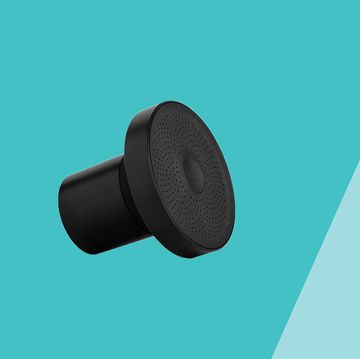You already know how to treat others as you'd like to be treated. But are you treating yourself that way, too? Self-compassion, or self-kindness, is vital to your wellbeing and life satisfaction, according to Kristin Neff, PhD, a leading researcher on self-compassion and author of Self-Compassion: Stop Beating Yourself Up and Leave Insecurity Behind.
In a recent TEDx talk (an offshoot of TED Talks), Neff argues that self-compassion is actually more important than self-esteem. Her rationale: Self-esteem depends on feelings of superiority or accomplishment, while self-compassion doesn’t. When you compare yourself to others and come out on top, Neff says, your self-esteem gets a boost. But when you fail, or feel like you’re only average, your self-esteem plummets. Self-compassion, on the other hand, doesn’t depend on feeling special—it merely depends on the ability to treat yourself like a human being who deserves love and care. In other words, all it takes to practice self-compassion is to start acting like your own best friend.
At this point, you can probably recognize the sound of your harsh inner critic—that awful voice saying you’re too lazy, fat, undisciplined, whatever. But Neff says you’re mistaken in thinking that this voice is driving you to do better. “We’ve been taught that we need to be harsh with ourselves in order to get ourselves going, whereas the truth is just the opposite,” she says. When you attack yourself, you actually make it harder to succeed. That’s because self-criticism releases the stress hormone cortisol, sending you into a state of anxiety that’s similar to feeling physically threatened. A common reaction to constant self-imposed stress is depression, which kills your motivation.
More from Prevention: 2-Minute Stress Solutions
That’s where self-compassion comes in. When you feel reassured that failure isn’t the end of the world and that you’re not alone in failing, you’re actually in a position to try harder. “People who are more self-compassionate are actually more motivated and more likely to pick themselves up when they do fail,” Neff says.
Fortunately, being a good friend to yourself is easier than it sounds. Neff offers these tips to incorporate self-compassion into everyday life:
Let yourself feel bad. Self-compassion means recognizing that negative emotions, as much as they suck, are a normal part of being human. That means letting yourself feel them. “You want to make yourself safe enough to have whatever your natural reaction is,” Neff says. If that means making your ugliest cry face and punching your pillow for an hour, go ahead. Self-compassion doesn’t mean wallowing in self-pity, however. It means always keeping your best interest at heart, and it isn't in your best interest to stay home in PJs for an entire week.[pagebreak]
Tell your inner critic to move along. You wouldn’t say the same things to a friend that you say to yourself when you’re feeling down. (Examples: “stop being a baby,” “you always screw up,” or “why are you such a failure?”) Neff says it’s time to question why you say those things to yourself. The next time a judgmental thought pops into your head, understand that your inner critic is just trying to help you. Unfortunately, that critic isn't particularly helpful, so thank it for trying to help, dismiss it, and move on.
Write yourself a love letter. A study at York University showed that writing yourself a comforting letter every day for a week can make you feel happier for up to six months. Pen yourself a pick-me-up, but write it from the perspective of a loving friend or relative. “What would you say to yourself in this situation using a very kind, compassionate, and understanding voice?” Neff asks. She recommends coming back and reading your letter from time to time to reinforce the effect.
Treat yourself. Failure is not the time to punish yourself, says Neff. Try the opposite approach and give yourself a small treat, like a bubble bath or a cup of frozen yogurt, instead. Giving yourself a boost can actually make failure less frightening, which means you’ll be more likely to take risks in the future. “If you know that it’s safe to fail, you will be less afraid of failure,” says Neff. That means you’ll be quicker to dust yourself off and try again.
Invent a self-soothing gesture. As mammals, we’ve actually evolved to respond to a gentle, warm touch with a lowering of cortisol and a release of soothing oxytocin, Neff says. This happens even when the touch is our own. “Use some sort of physical gesture to express care, compassion, and soothing,” Neff recommends. It could be anything from placing your hand over your heart to patting yourself on the leg. Once you’ve invented your gesture, you can whip it out in the middle of a stressful situation. “Once you calm your body down, it’s actually easier for your mind to follow suit,” Neff notes.
Be your own cheerleader. Try speaking to yourself out loud the way you would to a close friend. When you verbally comfort yourself in the midst of a painful feeling, “it’s simultaneously acknowledging and validating that you are feeling it,” Neff says. Acknowledging your feeling keeps you safe from denial, and validating it reminds you that it’s totally normal to feel this way. If it feels awkward to mumble to yourself out loud, just say the comforting words in your head.
More from Prevention: 4 Little Ways To Love Yourself More
Questions? Comments? Contact Prevention's News Team.












